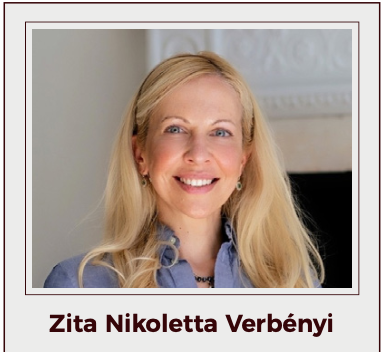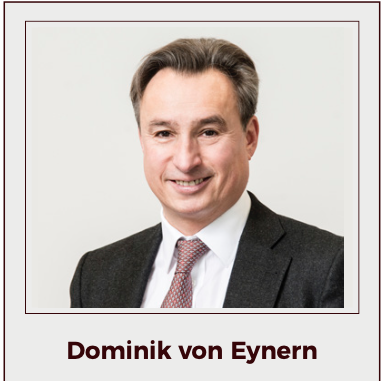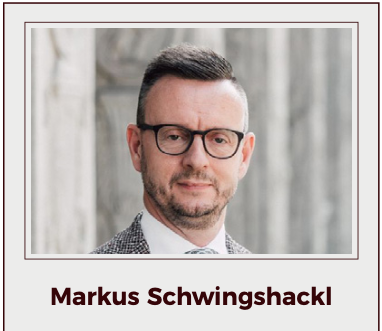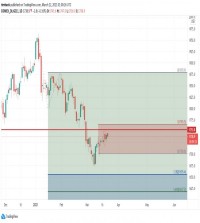|
Four HORIZONS Contributors, All experts In Their fields, Reflect Here About The Previous Article “Mountaineering Legend Reinhold Messner’s Inheritance Debacle”. 1. What is your view on distributing wealth before death? Octavian Graf Pilati: In general I believe that a partial distribution of assets before death is the right and smart move to make. How and when this is done is dependent on the family and their assets. Also on how involved the next generation is in the management of the family wealth. Particularly operational assets should be handed over early. Our cognitive abilities start to decline after the age of 50, so I advice these hand-overs to happen between 60 and 70 years of age of the generation in “power”. Also the hand over needs to be clear. Often the Now Gen likes to keep blocking minority rights, or retain economical ownership of the asset, while only handing over factual ownership. These muddy constructs are difficult and from my own experience not a good idea as they will lead to needless conflict. The Now Gen should retain enough wealth however to enjoy and life comfortably for the rest of their life and to have the space to follow new endeavors and hobbies.  Octavian Count Pilati comes from a princely family (KhevenhuÌller) whose rich history dates back to before the year 1000. He studied mechanical engineering at the TU Vienna. Dealing with a crisis in the family business from 2015 to 2018, Octavian is now sharing his experiences and knowledge about family business, family dynamics, crisis, fraud, conflict and leadership. Zita Nikoletta VerbeÌnyi: Finding a fitting wealth distribution framework and time horizons around it will differ for each family, however before any of this happens, ideally families would need to be engaged and aligned on what they hold important as individuals making up the family, what these mean for the collective and how to balance these for everyone’s benefits. Families would need to create a solid shared identity and a joint future plan anchored in, and to be built upon, their unique foundations. Decades-long lack of presence by anyone means that these individuals do not know neither their family members, their drives, purpose and expectations, nor the events and dynamics that have been shaping and playing out within the family during their absence. The notion of not knowing is critically dangerous for heads of families, as they might reign over some/ most of the assets, however once these controlling threads are removed, everything will fall apart for them, especially if this happens before their death. Such absentees would need to consult family members who have held the (real) family power of knowing everyone and try to learn about, as well as engage with, their other family members. Family legacy curatorial and identity projects are necessary to preserve, maximise and build upon the complex family legacy whilst bringing and keeping family members together in powerful ways.  Zita Nikoletta VerbeÌnyi is the Founder and Legacy Aesthete at The Legacy AtelierTM (www.thelegacyatelier.com) and the 1st PhD Candidate in Family Legacies. Dominik von Eynern: Depending on tax regulations it might be prudent to do so in the name of savvy operational- and financial risk management. Another aspect is longevity: especially in the well- heeled part of the population, life expectancy has increased significantly in recent years, and to my mind, it makes sense to share wealth before a century has elapsed to the benefit of the next generation, which should still be young enough to grow into responsible and accountable wealth owners in the name of the family legacy. These rational arguments will resonate with anyone who deems him or herself as an outside observer, but for those who are concerned with it – i.e., donor and recipients, it becomes a matter outside the realm of rationality. But fears of relinquishing control and purpose on the donor side will influence decisions, often even outside of her or his conscious awareness. The recipients are hoping to maximize their payoffs while arguing a ‘fair’ distribution of wealth and may engage in role seeking behaviors. Of course, fairness is a social construct and does only exist in the eye of the beholder, thus unproductive conflicts are likely. Distributing wealth before death can be a real opportunity to consciously manage the transition and to avoid unproductive conflicts resp. to pre-empt post-mortem conflicts that are potentially arising from the fact that testators often rule from the grave by arbitrary wills. But the transition of wealth needs to be a facilitated process alongside education for everyone involved that allows mutual agreements for the distribution of financial wealth and the governance of it. In the absence of facilitation and behavioral interventions it can become a nightmare which risks the erosion of legacy and wealth to the benefit of the professional service industry.  Dominik v. Eynern comes from a business family which is now in its 5th generation. He holds a BSc in Economics and a MSc in Finance, worked in the international investment banking industry. He’s a founding member and director of Family Hippocampus ltd. His research on family dynamics is inspired by insights from behavioural economics, cognitive neuroscience, dynamic complex system, and chaos theory. Markus Schwingshackl: There are many arguments in favor of an early transfer of family wealth. It provides clarity and predictability for everyone involved, and legal and tax challenges can be resolved effectively and efficiently. The transfer does not have to be unconditional, but can be adapted to the individual family situation. In particular, trusts and foundations can enable frameworks that align wealth ownership with a family’s purpose of wealth. However, wealth owners who want to preserve wealth and harmony cannot avoid discussing family members’ views and expectations. Furthermore, clarity on the current generation’s expectations is required to allow the family to express reservations or even waive an inheritance. Families must define the desired result. That result is rarely a mere transfer of ownership but rather a new constellation that significantly impacts family relationships and each family member’s individual position. In both scenarios, whether transferring wealth during or after one’s lifetime, a conscious and transparent approach has the highest probability of success in securing a family’s cohesion and preserving its wealth in the long term.  Markus is a private wealth lawyer assisting global wealth owners, entrepreneurs, and their families in navigating the complexities of wealth management, wealth planning, estate planning, and family offices. He is qualified to practice in Switzerland, Liechtenstein, and Austria and is the founder of Centro LAW, a wealth management and family office law firm based in Zurich, Switzerland. Markus also specializes in financial product and digital assets regulation, with significant experience in blockchain and fintech. Further fields of activity include white-collar crime, cybercrime, and cross-border financial crime. 2. If the testator was the owner of operational business(es), what would be some recommendations to structure the inheritance? Octavian Graf Pilati: Hand over leadership in time. Don’t keep blocking minorities, and trust the next generation. Let go, either you are a supportive grey eminence or you should be a non-present grey eminence. Make sure to have adequate conversations with everyone about the operational businesses and find out who is willing and competent to be if at all in a leadership position (CEO). The same applies to ownership of the operational venture. If there is no workable solution I advice to sell the venture while it is still well run. Dominik von Eynern: A portfolio of liquid financial instruments such as equities and bonds are easier to inherit from an operational perspective, because valuations equal market prices and the required liquidity to pay inheritance/gift taxes is readily available. From a governance perspective it is also easier since most families will have outsourced the management to a private bank or private wealth manager. Operating companies are more complicated as the valuation and liquidity is not readily available. The Endowment Effect may also play a role. It is a phenomenon researched in Behavioral Economics (Daniel Kahneman, Richard Thaler et. al.). The owner of a company evaluates his or her holding much higher than the market would be ready to pay by the mere fact that they own it, and this can make sales negotiations difficult. Thus, the portfolio of illiquid companies becomes even more illiquid by the Endowment Effect, because selling at market price is psychologically prohibitive for the proprietor. This situation implies the requirement for a long-term plan to build up liquidity so that the recipients can fiscally afford what is about to be gifted to them. To my mind, this needs a greater degree of social system synchronicity and discipline vs. the case of the distribution of a portfolio of financial instruments. Markus Schwingshackl: First, the importance of the business in the family’s overall wealth should be clarified. Is it seen as an interchangeable part of the asset allocation, or should it be retained as part of the family wealth for specific reasons? As a next step, responsibilities and expectations can be defined based on a precise classification, and the business’s ownership can be structured accordingly. To organize the transfer of business assets in a target-oriented manner, all parties involved should have the same level of information and understanding of the respective views. Business owners should further consider various scenarios and their impact on family wealth. This can also reveal the need for diversification and highlight risks like tight liquidity. 3. If the testator was the owner of a family business, what would you recommend then? Octavian Graf Pilati: Family business changes nothing for me to what I said above. The family history and legacy does not disappear with the sale of an asset. Focus more on the business family and less on the family business. That is my whole hearted advice. Dominik von Eynern: This takes it to a different level of complexity. The Endowment Effect not only applies to the business but also to the company’s founder who is endowed to his role and social status. In addition, the IKEA Effect, a bias that alludes to the fact that we find things more valuable when we have built them, makes it even harder to let go of the business he or she built. Thus, relinquishing control and the fear losing status and purpose becomes an even greater challenge to the testator, especially in the transition from the first to the second generation. It requires facilitated synchronicity work with all protagonists and methods such as the design thinking process to find mutual agreement regarding business governance, family governance and the allocation of assets. The testator should reframe and become a sponsor, coach and mentor to the inheriting generation and ensure a smooth transition of governance, leadership and wealth. To my mind, handing over the family business early with respect to current life expectancies and while the owner and his or her inheritors are capable to manage through the various transitions that are required on a socio-emotional and cognitive level is the most intelligent way to preserve, evolve and perpetuate legacy for generations to come to the benefit of all stakeholders. After all, family businesses are extremely relevant on a systemic level as in some cases, they provide much of the local GDP, i.e., directly or indirectly feeding generations of employees and their families who work in the business or their suppliers. Against this backdrop, it is a responsibility of the family to manage through a smooth transition as they are held accountable for the demise of the business caused by a failed succession apart from ruining their family legacy, losing all the money and enriching their professional service firms instead. Markus Schwingshackl: Governance is indispensable in this constellation. Research shows that family governance correlates positively with the preservation of family businesses. In other words, In addition to structured communication and decision-making within the family, the ownership structure must be defined, and family members’ involvement must be considered at the family business level. Balancing family, business, and ownership over a long-term period requires a targeted effort. The intersection of management and ownership represents a particular challenge that must be addressed. Family business owners should thus tackle family governance, business governance, estate planning, and succession planning. 4. Additional reflections: Octavian Graf Pilati: The paradox of balancing parentship and entrepreneurship. How can you ensure that you are a good parent and a good entrepreneur? Sadly in many business families the parentship suffers in favor of entrepreneurship. The Messner story is a perfect example of what happens then. Being a good parent who is present in the child’s upbringing is paramount and the best investment you can make into the continuity of your family’s wealth and legacy. Zita Nikoletta VerbeÌnyi: Appearances may also be upheld after the finances and legalities Some heads of families, whether they were absentees or hands-on, hold onto their reins even with already executed transitions of power. They still show up acting as if, not willing to hear or accept change and to be questioned. Some may even give the new scenario a go for a couple of months and then decide to reverse to their old position without seeking anyone’s consent. They are frozen in time, surrounded by frozen smiles and decision-making processes, leaving everyone in a forced position of waiting. At the same time, such occasions are also ideal for recording, narrating, curating and preserving Dominik von Eynern: Handing over wealth during lifetime is challenging and full of dilemmas, also because of a thinking style that is linear, dichotomous and hierarchical. On the one hand, it’s the ego which wants to protect us from adverse influences. It seeks control and acknowledgement, and behaviors are often amounting to self-serving strategies. Another side of the ego’s protection strategy is ‘legacy vanity’ which requires behaviors and actions that may counteract the ego’s core protection efforts and may trigger strong responses that contribute to decisions that are pertaining to the erosion of legacy. That’s one of the major dilemmas the testator has to work through during lifetime! I suggest adopting a complex thinking style, synchronize the self (i.e., the inner family) and the family system to effectively navigate through the challenges of passing it on to the next generation during a time of creative energy. Mind you, synchronizing the self and the family requires time and effort – so better to start early, especially in the light of creating responsible and accountable wealth owners! This to my mind, proactively handing over wealth and governance of wealth while alive and healthy is paramount as it can ensure smooth transitions that evolves legacies in perpetuity, regardless of the asset structure. Why? Because the m/patriarch can create a culture for legacy preservation – probably the best asset we can call ‘social capital’ she or he can pass on! Markus Schwingshackl: One can not highlight enough the importance of the human element in estate planning. Wealth owners may be advised on all technical aspects of a wealth transfer, which can still fail if the family is not sufficiently aligned. Issues such as conflict resolution within the family often only receive attention when it is too late. Thus, the estate planning process should involve engagement and discussion within the family. Wealth is the occasion, but family cohesion should be the cause. Family values, communication, responsibility, and awareness of identity and culture contribute to the family’s unity and lay the fundament for successfully navigating wealth transfers. Finding the right how and when will be less challenging in such an environment. Those who start estate planning early have the additional advantage of consolidating their arrangements and adapting to changing circumstances if needed. | ||||
|
Horizons: Family Office & Investor Magazine
Distributing Wealth Before Death: Should I, And How? |
|





 RSS
RSS










